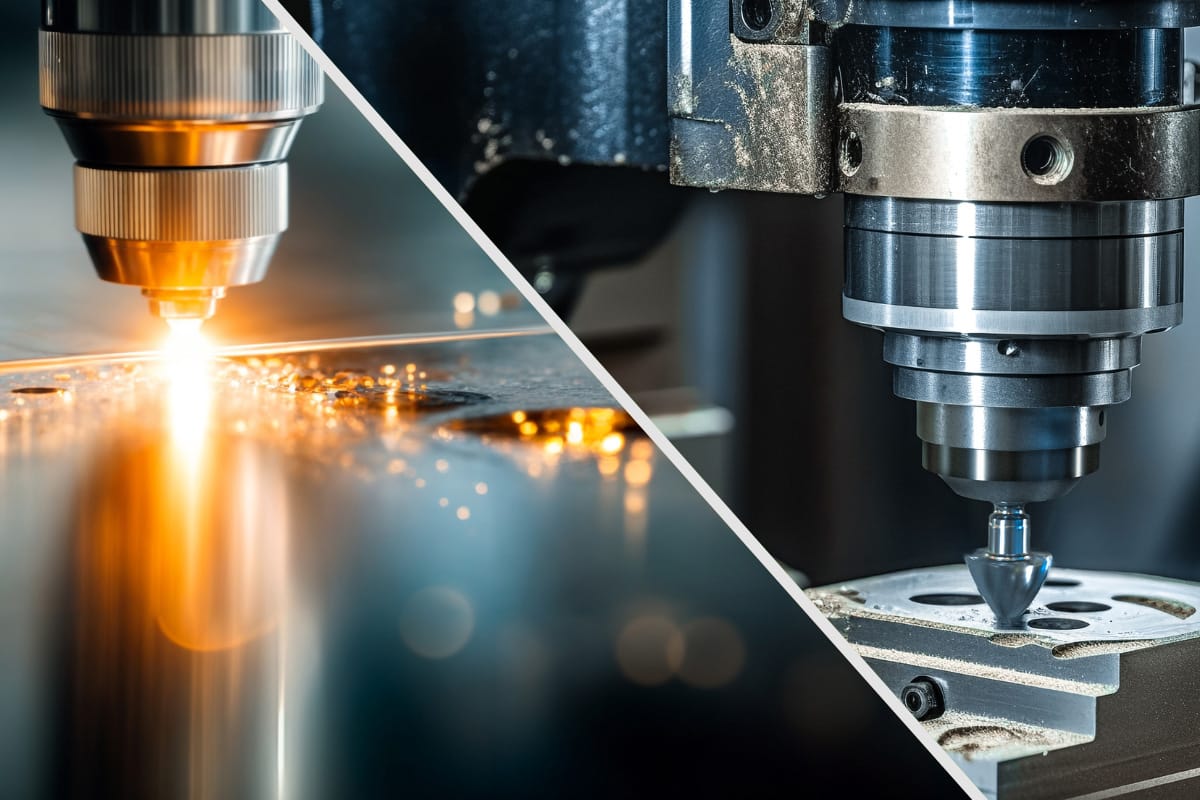The electronics manufacturing industry has encountered significant challenges recently, including global component shortages, increased costs, and severe supply chain disruptions. These issues, driven by factors such as the COVID-19 pandemic and geopolitical tensions, have highlighted the critical need for resilient supply chains. With a resilient supply chain, your business can adapt to disruptions, maintain operations, and recover quickly—ensuring consistent product quality and delivery.
This article examines the lessons learned from recent disruptions in electronics manufacturing supply chains. We will explore strategies to enhance supply chain stability and performance, enabling manufacturers to thrive even in the most challenging circumstances.
Current Supply Chain Issues in Electronics Manufacturing
Electronics manufacturers globally face many supply chain challenges that have significantly impacted production timelines, costs, and overall efficiency. Understanding these challenges is essential for developing strategies to build resilient supply chains.
Component Shortages and Delays
One of the most pressing issues in the electronics manufacturing sector is the shortage of key components. This problem has been exacerbated by global disruptions such as the COVID-19 pandemic and geopolitical tensions. Many manufacturers report delays in receiving essential components, leading to extended lead times and production halts. The scarcity of semiconductors, for instance, has affected various industries, from consumer electronics to automotive manufacturing.
Increased Costs
Supply chain inefficiencies have also led to increased costs for manufacturers worldwide. The need to source components from alternative suppliers, coupled with higher shipping and logistics expenses, has driven up production costs. Many companies have been forced to pass these costs onto their customers, resulting in higher prices for end consumers. Additionally, the cost of raw materials has surged, further straining manufacturers’ budgets.
Sustainability Efforts
Amid these challenges, there is a growing emphasis on sustainability within the supply chain. Companies continue adopting eco-friendly practices and often require their suppliers to do the same. While these efforts are crucial for long-term environmental sustainability, they add another layer of complexity to supply chain management. Manufacturers must balance the need for sustainable practices with the realities of current supply chain disruptions.
Specific Challenges Faced by Electronics Manufacturers
Electronics manufacturers across North America and beyond are grappling with various challenges that have profound implications for their operations. These challenges not only disrupt production but also threaten the overall stability and profitability of the industry.
High Impact on Manufacturers
A recent survey revealed that a significant number of manufacturers are experiencing major supply chain issues. Many businesses report that these disruptions have a major or severe impact on their operations. This widespread challenge underscores the vulnerability of the electronics manufacturing sector to global supply chain disturbances. The inability to secure critical components on time has led to production delays, increased operational costs, and, in some cases, halted manufacturing processes entirely.
Economic Recovery at Risk
The ongoing supply chain challenges pose a substantial risk to the economic recovery of the manufacturing sector and the broader economy. Manufacturers have reported significant sales losses due to their inability to meet customer demands promptly. Additionally, the increased costs associated with sourcing alternatives, expedited shipping, and higher raw material prices have eaten into profit margins. The ripple effect of these challenges extends beyond individual companies, potentially slowing down the recovery of the entire sector and impacting employment rates.
Balancing Sustainability and Supply Chain Efficiency
While sustainability efforts are essential for long-term environmental health, they add complexity to an already strained supply chain. Manufacturers are often required to incorporate eco-friendly practices, such as using sustainable materials and reducing carbon footprints, into their supply chains. This shift necessitates re-evaluating supplier relationships, investing in new technologies, and possibly facing higher costs. Balancing these sustainability goals with the need to maintain efficient, cost-effective supply chains remains a significant challenge for many electronics manufacturers.
Key Lessons from Recent Disruptions
The recent disruptions in the electronics manufacturing supply chain have provided valuable insights into building resilience and ensuring continuity. Here are some key lessons that manufacturers can learn from these challenges:
Diversification of Suppliers
One of the most critical lessons is the importance of diversifying the supplier base. Relying on a single supplier for key components can be risky, as disruptions in their supply chain can directly impact your production. By diversifying suppliers, manufacturers can mitigate the risk of shortages and delays. Developing relationships with multiple suppliers, locally and globally, ensures that if one source is compromised, alternatives are readily available.
Building Stronger Relationships with Suppliers
Fostering strong, collaborative relationships with suppliers is essential for navigating disruptions. Open communication and transparency can help manufacturers stay informed about potential issues and work together to find solutions. Regularly engaging with suppliers to discuss forecasts, demand changes, and potential risks can strengthen these partnerships and enhance supply chain resilience.
Investing in Technology and Automation
Leveraging technology and automation can significantly enhance supply chain efficiency and resilience. Implementing advanced planning and forecasting tools, real-time tracking systems, and automated inventory management can help manufacturers respond more swiftly to disruptions. These technologies provide greater visibility into the supply chain, allowing for proactive decision-making and improved coordination with suppliers and logistics partners.
Enhancing Flexibility and Agility
Flexibility and agility are crucial traits for a resilient supply chain. Manufacturers should design their operations to be adaptable to changing conditions. This might involve cross-training employees, maintaining flexible production lines that can be quickly reconfigured, and having contingency plans for various disruption scenarios. An agile supply chain can respond more effectively to unexpected challenges, minimizing downtime and maintaining productivity.
Focusing on Local and Regional Supply Chains
While global supply chains offer cost advantages, they are more susceptible to widespread disruptions. Focusing on local and regional supply chains can enhance resilience by reducing dependency on distant suppliers and shortening lead times. By sourcing components and materials closer to home, manufacturers can mitigate risks associated with international shipping delays, geopolitical tensions, and global supply chain shocks.
Emphasizing Sustainability and Ethical Practices
Sustainability and ethical practices are increasingly important in modern supply chains. Building resilience involves not only addressing immediate challenges but also considering long-term sustainability. Manufacturers should work towards creating supply chains that are environmentally friendly and socially responsible. This includes using sustainable materials, reducing waste, and ensuring fair labor practices throughout the supply chain. Sustainable practices enhance resilience, improve the company’s reputation, and align with consumer expectations.
Risk Management and Contingency Planning
Proactive risk management and effective contingency planning are essential for mitigating the impact of supply chain disruptions. Identifying potential risks and developing strategies to address them before they occur can prevent significant disruptions. This includes:
- Conducting regular risk assessments to identify vulnerabilities in the supply chain.
- Creating contingency plans for various scenarios, such as supplier failures, transportation disruptions, and sudden demand fluctuations.
- Establishing emergency response teams and protocols to ensure a swift and coordinated reaction to disruptions.
- Continuously reviewing and updating risk management strategies based on new insights and changing conditions.
Strategies for Enhancing Supply Chain Resilience
Building a resilient supply chain requires implementing a range of strategies to anticipate, respond to, and recover from disruptions effectively. Strategies that can help electronics manufacturers enhance their supply chain resilience include:
Strengthening Supply Chain Visibility
Enhancing supply chain visibility involves using advanced data analytics and real-time monitoring tools to track the movement of materials and products. These technologies provide valuable insights into supply chain performance, allowing manufacturers to identify potential issues before they become critical. Improved visibility leads to better decision-making, reduced lead times, and the ability to respond quickly to disruptions. It enables manufacturers to proactively manage inventory, optimize logistics, and ensure timely deliveries.
Collaborative Planning and Forecasting
Effective supply chain resilience depends on strong collaboration between all stakeholders, including suppliers, manufacturers, and logistics providers. Collaborative planning and forecasting help align expectations and ensure that everyone is working towards the same goals. Utilizing collaborative planning software and techniques like Sales and Operations Planning (S&OP) can improve coordination. These tools facilitate data sharing, joint planning sessions, and scenario analysis, leading to more accurate forecasts and better preparedness for disruptions.
Flexible Manufacturing Practices
Flexibility in manufacturing processes allows manufacturers to quickly adjust to changes in demand, supply disruptions, and other unforeseen events. Implementing flexible manufacturing practices can involve reconfigurable production lines, modular equipment, and adaptable workforce strategies. Flexible manufacturing might include the ability to switch production lines between different products rapidly, cross-training employees to perform multiple roles, and maintaining a versatile supply chain network that can shift resources as needed.
Investing in Workforce Training
A well-trained workforce is essential for managing and mitigating supply chain disruptions. Investing in training and development programs ensures that supply chain professionals have the skills and knowledge to handle complex challenges. Manufacturers can offer continuous education programs, certifications, and workshops focused on supply chain management. Encouraging employees to stay updated on industry trends and best practices through professional associations and training courses can significantly enhance their capabilities.
The IMS Edge in Building Resilient Supply Chains
IMS Electronics Manufacturing excels in building resilient supply chains, leveraging its expertise, advanced technology, commitment to sustainability, and collaborative approach to provide unparalleled value to clients.
✓ Expertise and Experience
IMS brings extensive experience in managing supply chain challenges. With a deep understanding of the complexities involved in electronics manufacturing, IMS has developed robust strategies to anticipate and mitigate disruptions. Our team’s expertise ensures that clients receive reliable, high-quality products on time, even in the face of global supply chain uncertainties.
✓ Advanced Technology and Tools
IMS utilizes cutting-edge technology for supply chain management. Our advanced data analytics and real-time monitoring systems provide comprehensive visibility into every aspect of the supply chain. This technology allows us to identify potential issues early, optimize logistics, and ensure seamless operations. By integrating these tools into our processes, IMS enhances efficiency, reduces lead times, and maintains high-quality standards.
✓ Commitment to Sustainability
We implement eco-friendly practices and initiatives that benefit both clients and the environment. Our sustainable practices include responsible material sourcing, minimizing waste, and reducing energy consumption throughout our manufacturing processes. By prioritizing sustainability, IMS meets regulatory requirements and supports clients in achieving their sustainability goals.
✓ Collaborative Approach
At IMS Electronics Manufacturing, we believe in the power of collaboration. Our approach involves working closely with clients and suppliers to build strong, resilient supply chains. By fostering open communication and partnership, we ensure that all stakeholders are aligned and can respond quickly to any disruptions. This collaborative approach enhances supply chain resilience, leading to more efficient operations and better outcomes for our clients.
Strengthen Your Manufacturing Process with IMS Electronics
Building resilient supply chains in electronics manufacturing is crucial for maintaining product quality, meeting delivery deadlines, and staying competitive in today’s dynamic market. By learning from recent disruptions, manufacturers can implement strategies such as enhancing supply chain visibility, fostering collaboration, adopting flexible manufacturing practices, and investing in workforce training. These measures help mitigate risks while also ensuring long-term stability and growth.
IMS Electronics Manufacturing is your reliable partner in building resilient supply chains. With our expertise, advanced technology, commitment to sustainability, and collaborative approach, we help clients navigate supply chain challenges and achieve their manufacturing goals. Collaborate with IMS to secure a resilient partner ready to adapt to disruption.
Ready to strengthen your supply chain and ensure your manufacturing success? Contact IMS today and discover how we can help you build a resilient future.




